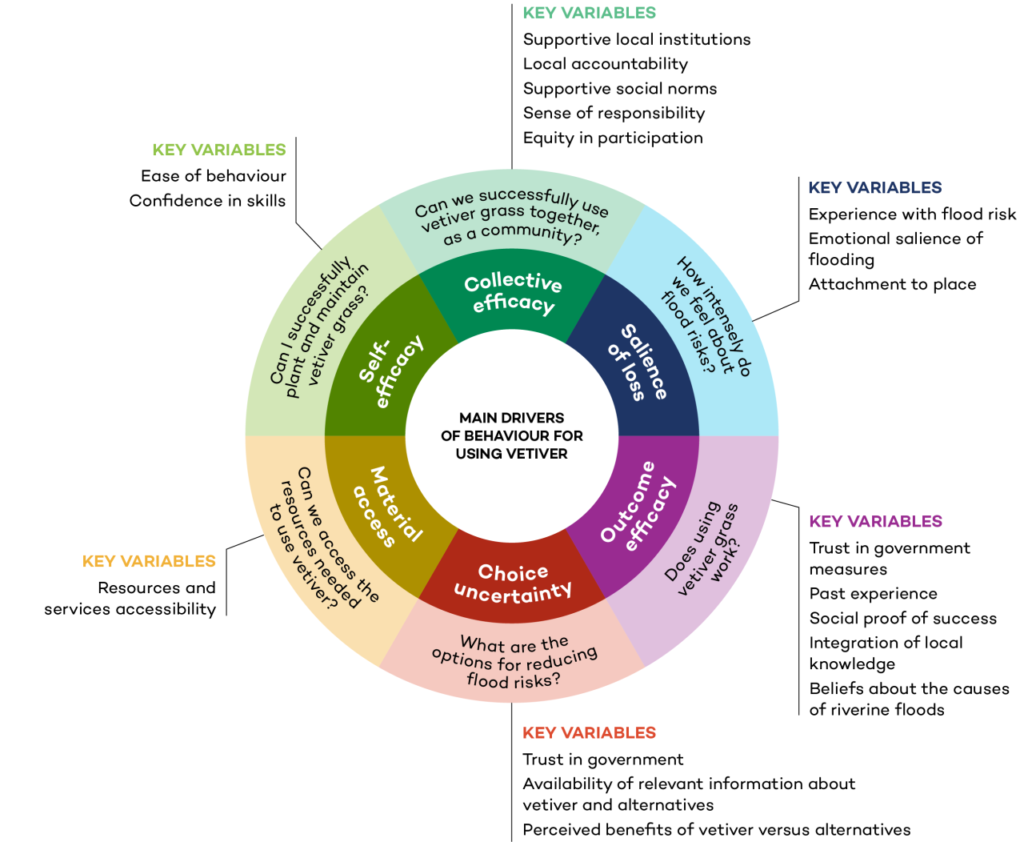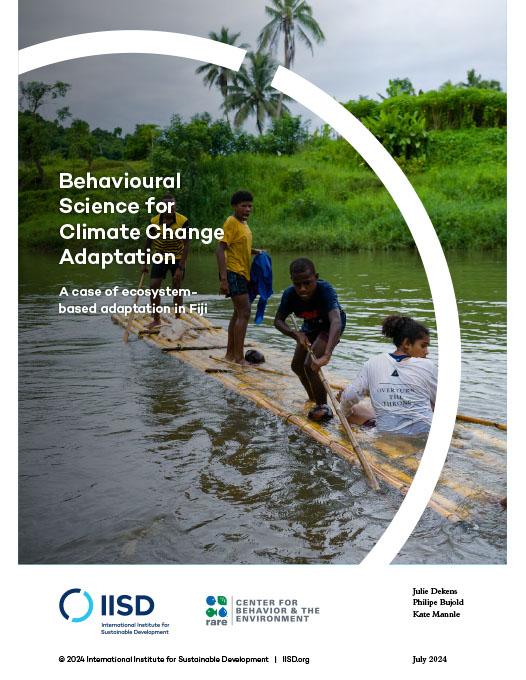Scaling up the adoption of EbA solutions using behaviour-centred design: The case of Vetiver grass for riverbank erosion control in Fiji
Project Information
“Planting for Resilience” is a project bringing together climate adaptation experts from the International Institute for Sustainable Development (IISD), behavioural change scientists from Rare’s Center for Behavior & the Environment, and government officials from the Fijian Ministry of Environment and Climate Change.
The goal of the project was to leverage insights from behavioural science to accelerate the uptake of ecosystem-based adaptation (EbA) solutions among vulnerable communities in Fiji. To this end, the project developed a case study examining the extent to which a specific EbA solution promoted by the Fijian government – the use of vetiver grass for riverbank rehabilitation against flooding – was adopted in four communities in Tailevu province and the factors that influenced adoption among targeted communities.
Project Achievements
1. Conducted Comprehensive Research Across Four Rural Villages: Carried out a series of semi-structured household interviews in February 2023, coupled with village transect walks and participatory maps, focus group discussions with women, men and youth, and semi-structured interviews with experts at the national and provincial levels to understand past interventions.
2. Analysed Community Behaviour Using UNCIEF’s Behavioural Driver Model (BDM): Applied the 2019 BDM framework to assess behavioural determinants influencing vetiver grass adoption. The analysis revealed very limited uptake of vetiver across the selected communities.
3. Identified Six Key Variables Shaping Farmers’ Decisions on Vetiver Use: Based on the data collected, the research team identified six core variables that seemed to influence farmers’ behaviour in relation to using vetiver against riverbank erosion:
- Salience of loss: whether villagers feel strongly about the negative impacts that erosion and flooding have on their lives
- Choice uncertainty: whether villagers are certain about the options available to them to reduce erosion
- Outcome efficacy: whether villagers feel vetiver grass will successfully reduce erosion
- Collective efficacy: whether villagers feel their community can plant and maintain vetiver to reduce erosion
- Self-efficacy: whether villagers feel they personally can successfully plant and maintain vetiver grass to reduce erosion
- Material access: whether villagers feel they can easily access and afford vetiver
These factors seem to currently matter the most in the selected communities and they should be prioritized in future interventions. Importantly, while each of the six drivers is important to support vetiver grass adoption, addressing each variable in a siloed manner will likely not be sufficient to bring sustained change.

Key Metrics




